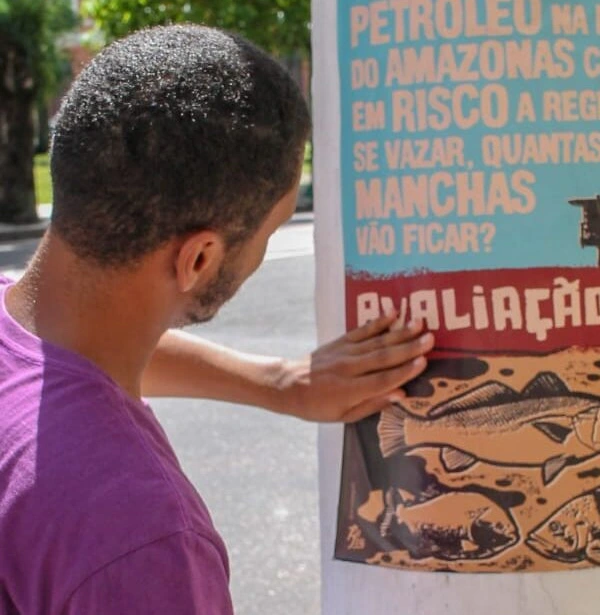Brazil: A Climate Leader in a World of Contradictions
Brazil's climate leadership despite complexities.
Ana Clara Toledo & Mariana Ribeiro

This article comes from our Purpose Brazil office, a leader within the country’s climate space, pushing for a more sustainable future for us all.
It’s safe to say Brazil has earned its space on the global stage over the past year. We were the country with the largest delegation at COP 28, delivered powerful speeches at the UN, and orchestrated multilateral partnerships. Now, we are preparing to host the G-20 and, in 2025, we will host COP 30 in Belém.
However, Brazil’s leadership within the climate space is not without contradictions. While deforestation in the Amazon is decreasing, it remains devastating in the Cerrado, a vast ecoregion of tropical savanna in eastern Brazil. Neighbors like Colombia commit to ending the proliferation of fossil fuels, while Brazil recently held the largest oil and gas auction in its history. How can the country lead globally in a field where our internal actions are still so inconsistent?
To ensure that this leadership is coherent, just, and bold, we can turn to lessons learned through the work of the Purpose Climate Lab in Brazil. These lay out the important foundations needed to increase our climate ambition and action in the coming years.

1. Strengthening the Foundations for Action
Over the past three years, much of the work of the Purpose Climate Lab in Brazil has focused on strengthening grassroots organizations in the Amazon, empowering them to lead campaigns for narrative and public policy changes in their territories. We have collaborated with more than 30 organizations, and today we see a network of over 100 local campaigners working on research, strategy building, narrative creation, content production, and impactful interventions.
Before building large campaigns in the Amazon, it was essential to understand the existing ecosystem: who was already in it, what efforts needed to be strengthened, and which voices needed amplification. By collaborating with organizations led by young people, women, black, and Indigenous people, we helped to structure a civil society that today assumes leadership roles in the climate movement and is ready to engage at local, regional, and national levels. This solid foundation is crucial for the growing prominence of these voices in the climate arena.
2. From City to Village: Working with Diverse Organizations
Our largest projects in the Amazon were developed through open calls, which allowed organizations from all states and territories to apply. The first lesson we learned was that there is enormous potential: the more we know, the more there is to discover. The second is that these open calls enabled us to select a diversity of organizations — from associations of rural workers to Indigenous collectives, urban groups, and quilombola communities.
This diversity brought a richness of exchange and expansion of partnership. This combination of initiatives highlighted the concrete points of a shared Amazonian identity, which has become the basis for joint action and perhaps the most crucial ingredient for the expansion of local movements.
3. Narrating the Change We Want
In these years, we have learned that practices are deeply connected to narratives. The way we see and act in the world is closely tied to the stories we know and believe. Statements like “oil will bring jobs and development to our city” or “standing forest doesn’t bring money” are not just rhetorical—they constitute the ideological foundation that seeks to justify practices like deforestation, illegal mining, and other forms of violence and oppression.
Therefore, when leading projects and campaigns with our partners, we pay special attention to understanding the narratives surrounding the topic. We seek to identify the voices representing different perspectives and discourses, with the purpose of strengthening the stories and people who lead us toward a more habitable and just future. The work of Casa de Mensagens is a great example of this value coming to life.
4. Identifying Local Problems to Generate Structural Change
In building our relationship with the Amazon region’s ecosystem, we identified that an important contribution of the Purpose Climate Lab was sharing tools for developing campaign strategies that enabled organizations to be present in strategic spaces for public policy development.
We encourage groups to identify specific climate problems in their territories and seek solutions that would unlock local policies. As a result, campaigns emerged that demanded the creation of bike lanes, environmental councils, bills to guarantee river rights, and mechanisms to protect the environment and the lives of territory protectors. These local efforts have the potential to generate structural changes that go far beyond their communities, influencing public policies on a regional and national scale.
A Call to Action
Brazil is at a critical juncture in its climate leadership. The contradictions we face cannot be ignored but must be addressed head-on with courage and coherence. The work done so far by the Purpose Climate Lab in Brazil shows us that, to lead in a just and bold manner, we need to strengthen our foundations, embrace diversity, and narrate the changes we want to see.
Now, more than ever, it is time to turn these lessons into concrete actions. We invite everyone who shares this vision to join us in building a more sustainable and just future for all.